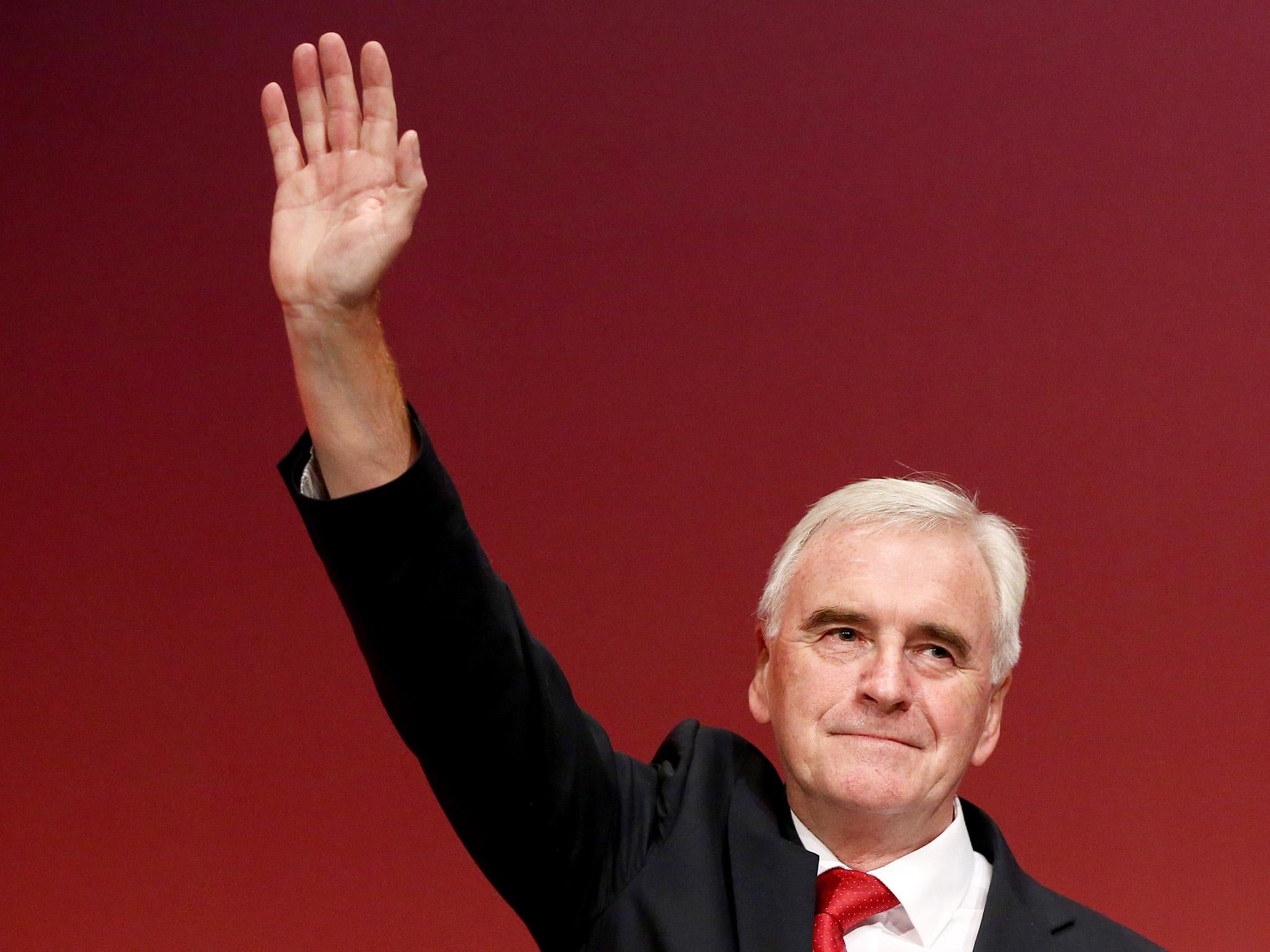Goldman Sachs invites John McDonnell for meeting as City looks to patch relationship with Labour
Banks are taking Labour more seriously as they look for better relations with the political party

The Labour Party’s shadow chancellor, John McDonnell, has accepted an invitation for talks at the Wall Street bank Goldman Sachs as it seeks better relations with a political party whose leaders have pilloried bankers.
Banks in London had hardly bothered to court Labour since 2015, when it elected the leftist Jeremy Corbyn as its leader - but are taking it more seriously after a strong election in which it deprived the Conservatives of their absolute majority and left Prime Minister Theresa May severely weakened.
Mr McDonnell’s spokesman said he had accepted Goldman’s invitation.
“I said of course I would (meet),” Mr McDonnell said in an interview with Bloomberg, which first reported news of the plan to meet a top executive. “We’ll even make him a cup of tea and throw in some Rich Teas as well.”
There is clearly work to be done. The US investment bank Morgan Stanley has told investors political uncertainty is a bigger threat to Britain than Brexit, given the risk of Corbyn winning power and dismantling its free-market economy.
Under Mr Corbyn and Mr McDonnell, Labour has shifted from the centrist pro-business platform of former Prime Minister Tony Blair to being more interventionist and left-wing - and Mr Corbyn’s response was forthright.
“Bankers like Morgan Stanley should not run our country but they think they do,” he said in a video posted on Twitter on 1 December. “So when they say we’re a threat, they’re right: We’re a threat to a damaging and failed system that is rigged for the few.”
But there are also signs of a shift in tone from both sides.
After Labour’s unexpectedly strong gains with an anti-austerity message in June’s election, Barclays Bank Chairman John McFarlane praised Mr Corbyn’s campaign as “bang on”.
“What people soon realise is how serious we are about tackling some of the long-term economic problems the UK faces,” Jonathan Reynolds, the Labour party’s envoy for financial services, told Reuters on Tuesday, “and that we really do welcome their input into our policy development.”
Nevertheless, Labour sees scope to extract more revenue from the City of London, home to more banks than any other financial centre. London vies with New York for the title of the world’s financial capital and dominates the $5.1-trillion-a-day global foreign exchange market; financial services contributed 11.5 per cent of total UK government tax receipts in 2016.
McDonnell has already met executives from Standard Chartered, the London Stock Exchange, the City of London Corporation, lawyers, lobbyists and accountants about Labour’s proposals to expand an existing tax on shares to include trading on other assets such as bonds and derivatives.
FLEEING TAXES?
Industry figures say such a tax could exacerbate the impact of Brexit by prompting more businesses to flee London.
Mr McDonnell also said on Monday that he had held discussions with Royal Bank of Scotland chief executive Ross McEwan after Labour said it wanted to break up the state-owned lender into smaller banks with a mandate to serve local areas.
As a backbencher a decade ago, Mr McDonnell attacked Goldman Sachs financiers for giving themselves multi-million pound bonuses at the height of the financial crisis.
“The people and institutions who have brought us to the brink of recession are rewarding themselves by becoming even more filthy rich,” he said.
In the past, Mr McDonnell has said he wants to overthrow capitalism and nationalise banks, and praised Karl Marx and Friedrich Engels’s “Communist Manifesto”.
“If we have Corbyn, we have Cuba without the sun,” Bobby Vedral, a London-based partner at Goldman Sachs, said recently.
But others take a more pragmatic view.
Mark Dowding, head of investment grade at BlueBay Asset Management, a specialist fixed income investor with $51.7bn of assets under management, recently met Mr McDonnell.
“The thing I would observe is the portrayal of individuals such as Mr McDonnell that are verging on the hysterical,” he said.
“In meeting with individuals such as himself, we are struck by the fact that there is a degree of thoughtfulness and passion about them that is encouraging.”
Reuters
Subscribe to Independent Premium to bookmark this article
Want to bookmark your favourite articles and stories to read or reference later? Start your Independent Premium subscription today.

Join our commenting forum
Join thought-provoking conversations, follow other Independent readers and see their replies